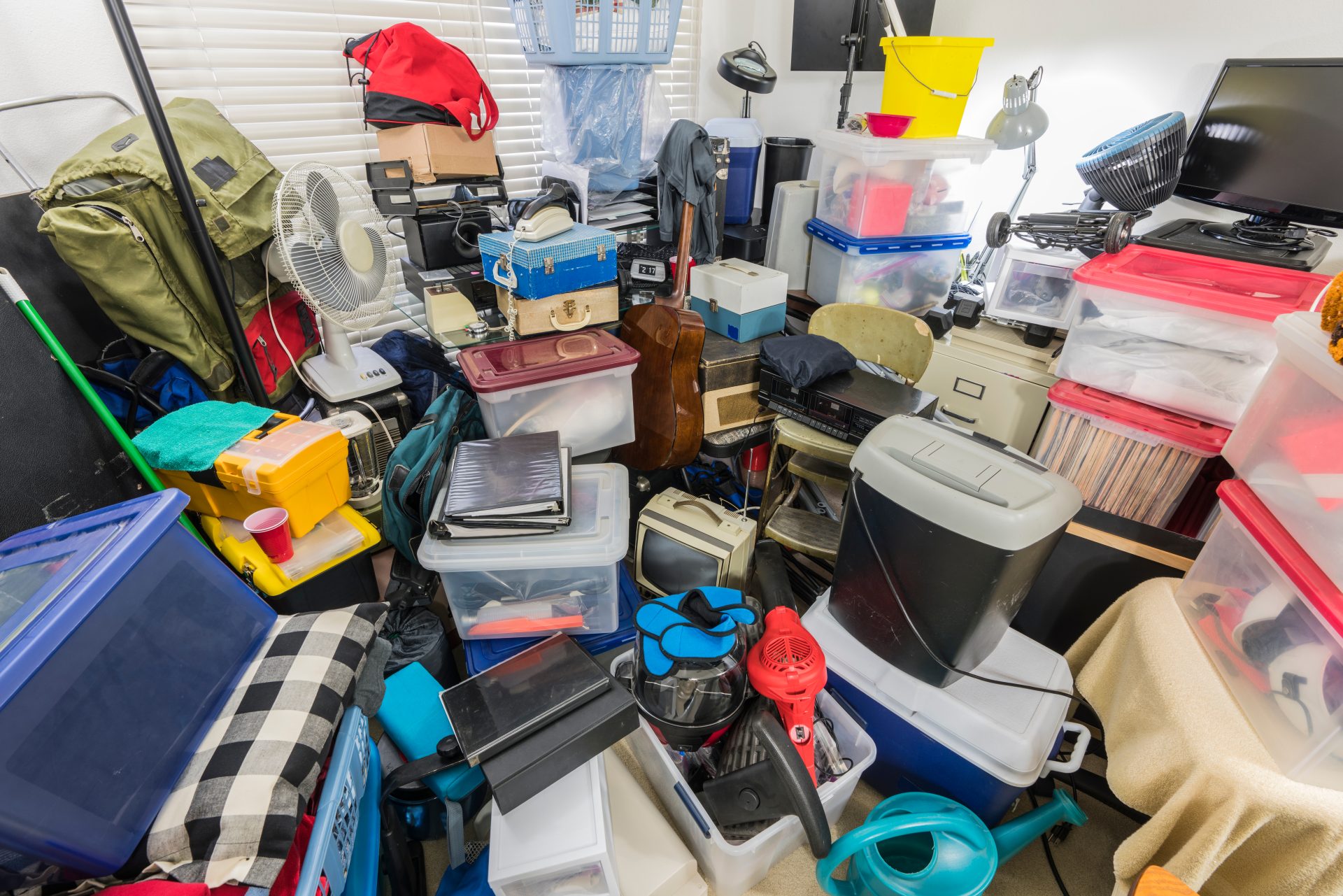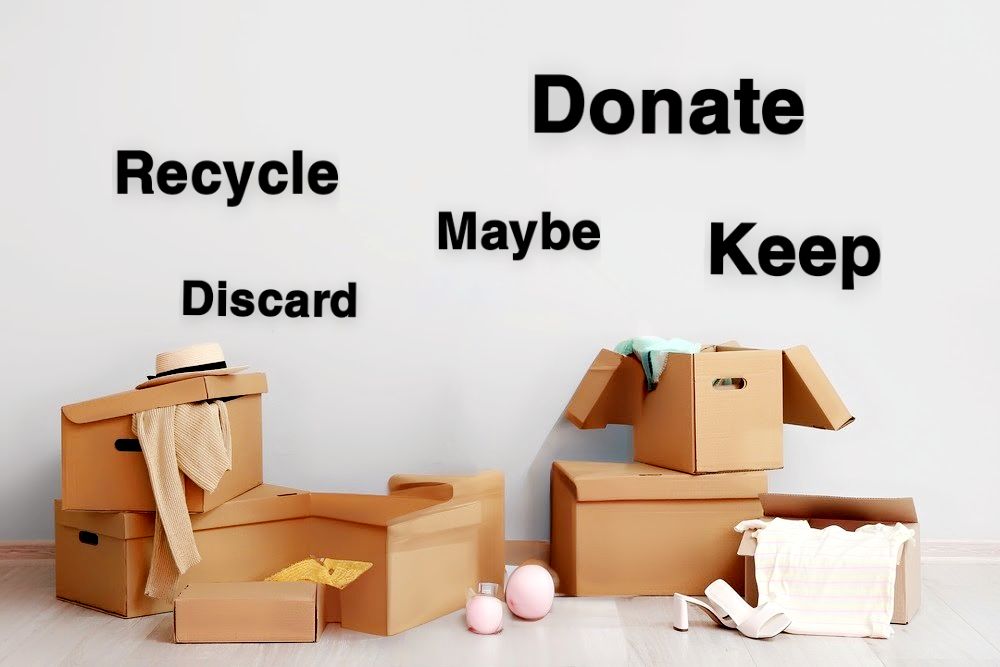
Cut through the three main “Clutter Myths”. Whether we realize it or not, a lot of us are walking around with
beliefs that are keeping us stuck in clutter. Today, I want to address three of the biggest decluttering blocks you
need to let go of in order to start decluttering, cleaning house or office, getting organized and finally feeling peace
of mind in your home or office space.
Clutter Myth No. 1: I hate throwing things away
I think we can all agree that throwing stuff away just feels bad. If you come from a long line of hard-working-frugal
family, then you probably have been told not to waste. The need to keep things grows stronger if you have a
history of trauma, perfectionism, or a family history of hoarding. That’s why, if you struggle to toss out unused or
broken items, I have some helpful suggestions. It will take some practice, but I trust you can do it.
Some Psychological Background:
We have an internal resistance to throwing things away. Science has shown that fearful memories are passed
down through several generations . This means you just might be carrying around your great-great-great-great-
great-grandpa’s belief that nothing should ever be thrown away. Remember, for those who came before us, the
desire to hang onto their things came because they were living in a time of scarcity. Food, clothing, and other
things may have been difficult to come by. Thankfully, the majority of us are not living in times like those. In fact, if
you have a clutter situation in your house or office, you are not living in times of scarcity. Because we are living in
times of abundance, the real problem is two-fold: we have issues discarding things, therefore, we have problems
accumulating too many things.
Clutter Myth No. 2: What if this is worth something someday?
The truth is that, unless the item is a real collection piece, you will end up with a minimum amount of money, and
you probably would need to share the profit with a consignment store.
The cost of clutter
The price of carting clutter around with you for decades often costs time packing, maintaining, and storing these
things. If you have a significant amount of clutter that you’re struggling to let go of, this may turn out to be a
financial expense, especially if you pay for a storage facility.
Selling your clutter
This option has a drawback because you will need to spend time, energy, and cash in order to get your items sold.
In a lot of cases, especially when it comes to collectibles, consider the fact that you need to take time, energy, and
some expense to: 1-setup online selling acct – 2-monitor the account – 3-respond to messages – 4-pack and ship
items.

Clutter Myth No. 3: What if I need this someday?
On top of the fear of throwing away items that may one day be useful, there is also a similar phobia that we might
donate an item only to have the person who gave it to us suddenly ask us how useful is that item to us.
Someone told me that junk drawer decluttering is the key to self-discovery – LOL.
The bottom line is that, if you have the courage to donate and discard smaller items in your home or office junk
drawer, you will gain the confidence to do the same with larger items that are holding you down from progress.
The Advantage of the 5-Boxes System
This is the system I follow. If you are not done with the project at the end of the day, everything can be placed in a
line order in the room with a clear logic to continue the next day. Here’s how it works:
1 box for donations
1 box for discards / or large construction bag for garbage
1 box for recycling
1 box for maybe or later decision
1 box for your “keeps” but need to relocate to another space

Be Gentle to Yourself
Remember that decluttering doesn’t have to be a rushed process. Schedule time to do it, and do one room/space
at a time so you can see the big impact at the end of your decluttering day.
